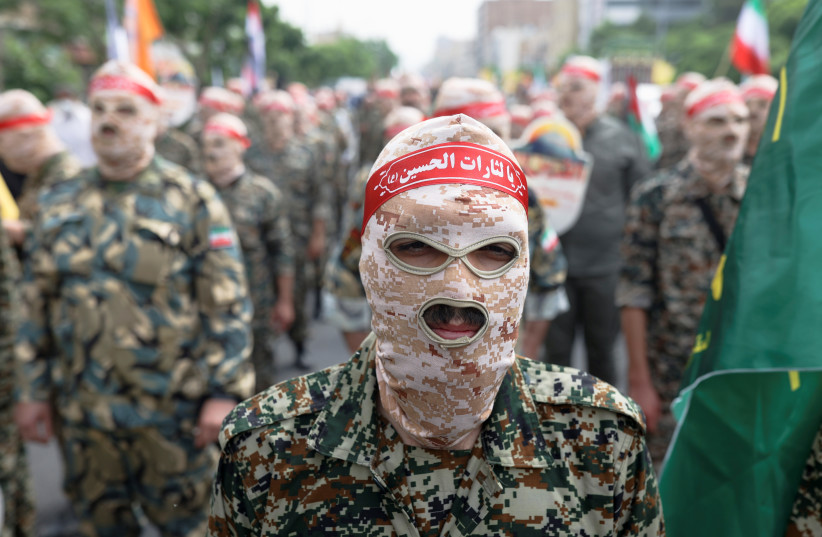“Iran must not, so to speak, be allowed to have its cake and eat it too,” said Maj.-Gen. Eyal Zamir.

Maj.-Gen. Eyal Zamir, who is in the running for IDF Chief of Staff, has called for the assassination of leaders of the Iranian Revolutionary Guard Corps (IRGC) in a new policy paper for The Washington Institute.
Zamir is in the running to replace IDF Chief of Staff Lt.-Gen. Aviv Kohavi along with Deputy Chief of Staff Maj.-Gen. Herzi Halevi and former Ground Forces Commander Maj.-Gen. Yoel Strick. He’s spent the last year at The Washington Insitute as a visiting military fellow.
Countering Iran
In the paper, titled “Countering Iran’s Regional Strategy: A Long-Term Comprehensive Approach,” Zamir said that the “IRGC is the backbone of the regime and the main means by which it seeks to dominate the region.”
The Israeli general said that the campaign to thwart Iran’s regional plans is taking place across the Middle East, with a “regional alliance” of the United States, Israel, the Gulf States (Saudi Arabia, the UAE, Bahrain, and Kuwait), Egypt, and Jordan as well as Qatar, Oman, Sudan and Morroco.
“The Iranian regional threat is the central threat to the national security of these nations and is the glue—the shared interest—holding the Sunni-Israeli camp together,” he said.
In order to reduce Iran’s influence, Zamir called on the countries mentioned as part of the alliance to weaken the IRGC “in every dimension and use every means possible to exert pressure on it.”
Targeted killings
One of the means Zamir called for was to conduct targeted killings, referring to the assassination of IRGC Quds Force Commander Qassem Soleimani in Baghdad by the United States.
Other ways to weaken the IRGC was to target the group’s leadership, commanders and key operatives responsible for planning and carrying out terror attacks, as well as to issue international arrest warrants for designated individuals.
He also stressed that the IRGC’s long-range strike capabilities (drones, rockets, missiles), as well as unmanned aerial vehicle main operating and forward bases, should be destroyed by covert operations.
“The IRGC is responsible for most covert activity, subversion of other governments, terrorist acts, and political assassinations in the Middle East and around the world, as well as maintaining contact with its regional and global partners,” Zamir wrote.
While Iran’s conventional military is far from capable of going up against the IDF or American forces in the region, the IRGC-one of eight military branches- the IRGC and its Quds Force is not only the Islamic Republic’s most feared and advanced military branch, it’s also a powerful political and economic player and answer directly to Ayatollah Ali Khamenei.
IRGC’s lethal capabilities
According to Zamir, among the IRGC’s advanced lethal capabilities are precision ballistic missiles, UAVs, aerial defenses, surface-to-sea missiles, advanced antitank missiles, and radar systems.
Iran carries out its attacks far from its borders by using proxies and standoff capabilities like UAVs.
Iran has been striking targets across the Middle East with its arsenal of combat drones, killing civilians and destroying strategic infrastructures, like Saudi Arabia’s ARAMCO oil refinery in a 2019 attack and the drone attack against the Mercer Street tanker that killed two civilians in July of last year.
That is because “Iran is vulnerable to and seeks to avoid direct attacks on its own soil,” Zamir wrote. “Operating this way provides deniability and gives its leaders a feeling of immunity.”
But “This feeling of immunity must be shattered,” he said. “To change the balance of deterrence, Iran must be made to pay dearly for its actions. Iran must not, so to speak, be allowed to have its cake and eat it too.”
As reported by The Jerusalem Post
